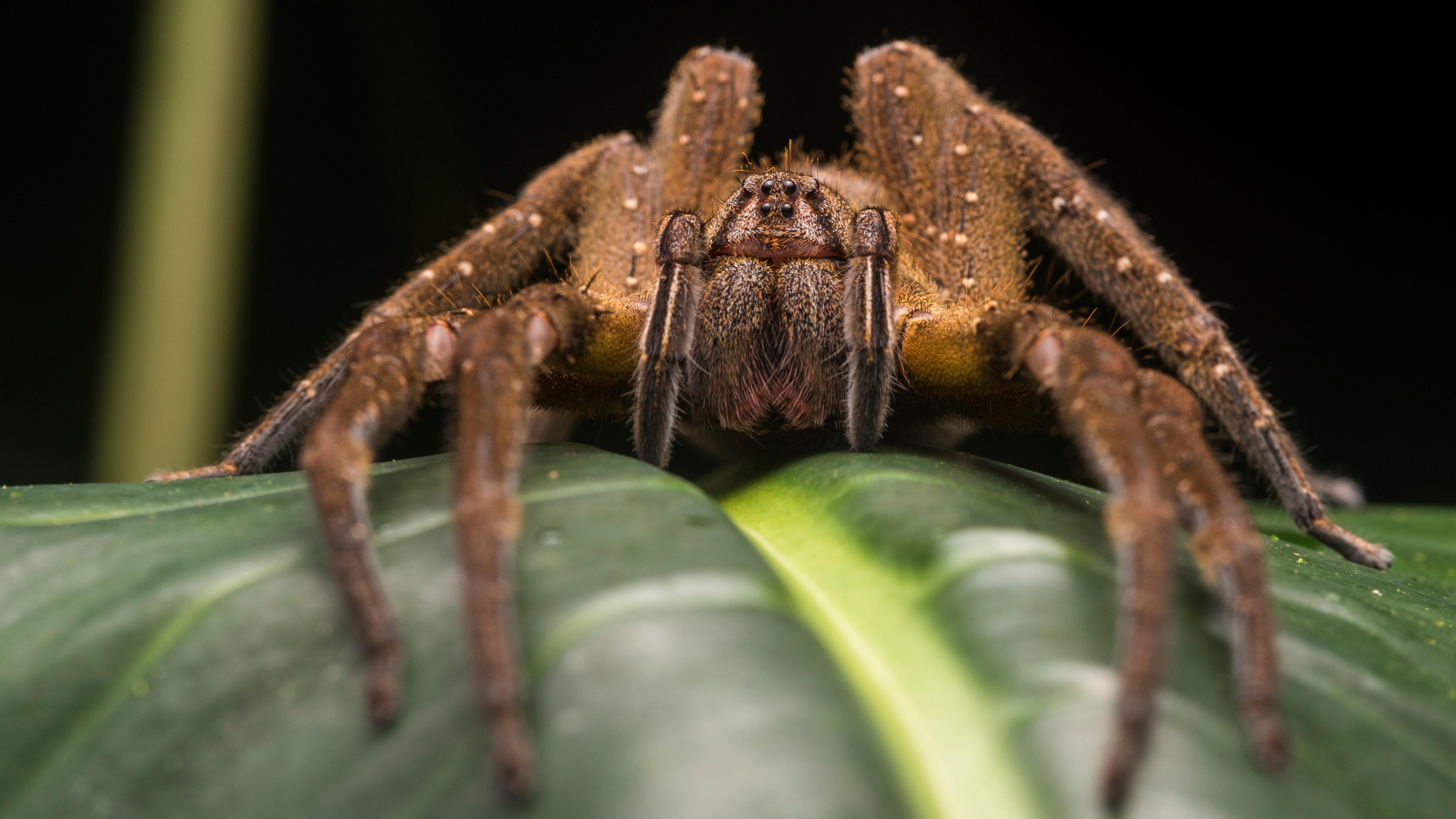No, this spider's venom will not give you a permanent erection, but it might last a few hours
A spider whose venom can cause a lot of pain, elevated blood pressure and hours-long erections was found among a bunch of bananas in an Austrian supermarket.

A supermarket in Austria was evacuated following reports of a spider whose bite can cause hours-long, painful erections. But media claims that the erections are permanent are not supported by science.
The spider was discovered in a discount store in Krems an der Donau, 45 miles (72 kilometers) west of Vienna, and is believed to be a Brazilian wandering spider (Phoneutria nigriventer), leading to a flurry of media reports claiming that its bite could cause permanent erections.
The 4-inch (10 centimeters) spider's potent venom gives it a nasty — and occasionally, fatal — nip that increases the victim's blood pressure and causes hours-long erections. However, there is no evidence that these erections are ever permanent.
Related: What is the deadliest spider in the world?
Past studies in rats have revealed that the Brazilian wandering spider's venom works by causing nitric oxide to be released in the brain. This chemical leads to a biochemical cascade that ends in the production of an enzyme called cyclic guanosine monophosphate (cGMP), which causes the muscles in the penis to relax, enabling 10 times the blood to rush into it.
A few hours later, however, another compound, called PDE-5, arrives to break down cGMP and return the penis to its previously limp state.
The spider's tumescent trick works from the opposite end of the biological pathway than drugs such as Viagra — which blocks the production of PDE-5 — leading scientists to study it in hopes of an application in future drugs to treat erectile dysfunction.
Sign up for the Live Science daily newsletter now
Get the world’s most fascinating discoveries delivered straight to your inbox.
Following the spider's reported discovery, the store was closed and fire brigades were called — but the arachnid is still nowhere to be found.
"Despite an extensive search, no spiders have been found to date," Austrian authorities said. It is assumed that the store won't open again until next week, after the conclusion of a thorough search.

Ben Turner is a U.K. based staff writer at Live Science. He covers physics and astronomy, among other topics like tech and climate change. He graduated from University College London with a degree in particle physics before training as a journalist. When he's not writing, Ben enjoys reading literature, playing the guitar and embarrassing himself with chess.









